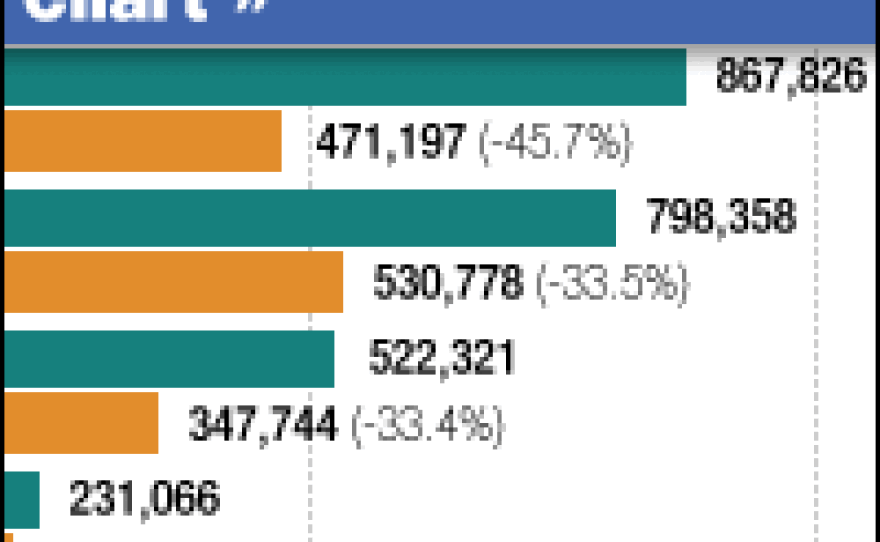General Motors has emerged from bankruptcy with its eye on regaining the trust and the dollars of the American consumer. But GM's goal is further hampered by the recession.
To help with that task, President and CEO Fritz Henderson said Friday that Bob Lutz, a veteran auto industry executive, is staying on as vice chairman in charge of all creative elements at GM, including products and customer relationships.
Lutz, who has been working in the auto industry since 1963, offered his perspective on the new GM in a conversation with NPR host Robert Siegel.
Correcting More Than Two Decades Of Blunders
"Where we really messed it up and took our eye off the ball in terms of the product was in the '70s, '80s and early '90s," Lutz says. "And I think in the last five or six years, we've had a radical transformation in the way we approach the product and our goals for product."
Lutz says he is optimistic about GM's market share despite its weakened status. Among the automaker's problems: a slump in corporate fleet sales because of fears about GM's bankruptcy.
Lutz says his optimism comes from GM's retail outlook and the industry's lower break-even point of about 10 million vehicle sales per year. Lutz says GM's U.S. market share is between 21 and 23 percent, which means the automaker will need to sell about 2.3 million cars a year in order to break even.
But the market is still depressed, with overall U.S. auto sales running at about 9.7 million a year, he says.
"There will have to be some form of economic recovery before any automobile company can hope to be profitable," Lutz says.
What's more, he says, GM's structural legacy costs for retirees' health care, debt servicing and other items took a tremendous toll: "It was a crushing burden, which we now no longer have weighing on us."
A Hard Sell
Customers also are still hesitant about the GM brand, and that's something Lutz is turning his attention to.
"The problem that we have right now is getting the breadth of the American public on both coasts and in the Midwest to realize the transformation that has taken place in General Motors' quality, design, fuel efficiency and so forth," he says.
Improving customer relations also means finding the right balance of dealerships. GM said it plans to cut the number of dealerships to about 3,600 by the end of 2010 — down from 6,000 this spring.
"What happened was, we were over-dealered — too many dealers were competing with same-make dealers that were too close by," he says. "And that was resulting in not only excessive discounting, which is bad for brand value, but it was also causing a lack of profitability for many of these dealerships. And when dealerships are not profitable, they can't offer the best service to the customer."
Toyota, he says, has far fewer dealers than GM, but its sales volume is "very similar to ours."
Online Auto Sales
GM has been testing a program of selling autos online on eBay in California. Some have asked whether this is a new paradigm that will rely less on traditional dealerships.
"All of these online experiments will purely be for the customer to make her pre-selection of the car — and ultimately that vehicle will still be delivered by a dealer," Lutz says. "There is no model which can legally permit automobile companies to sell directly to the customer."
The Internet doesn't permit the full range of a sale, he says, especially that ability to allow a dealer to see a used car that a customer may want to trade in.
Across the world, he says, "the franchised individual automotive independent retailer is the way to go; it's the model that works best."
Copyright 2022 NPR. To see more, visit https://www.npr.org. 9(MDAzMjM2NDYzMDEyMzc1Njk5NjAxNzY3OQ001))






